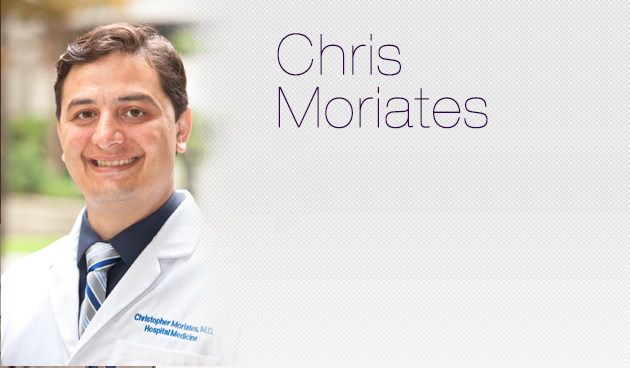“You must respect the body you are trying to heal.”
I heard this said twice into my headphones, the second time more slowly and firmly than the first, while I sat on the runway about to take off. It continued to echo in my head over the course of the flight. As a physician, the reference to healing a body has obvious resonance. However, as I embarked on yet another gathering of healthcare leaders discussing how to make our healthcare system better, this assertion took on a broader significance.
Clinicians often hear about – and experience daily – our “broken healthcare system.” There is little doubt that our system is sick, but it is not yet terminal. Physicians understand the art of treating a diseased person, bringing together clinical science and knowledge with emotional empathy and respect. Yet, when we become healthcare leaders, managers, or administrators and turn our sights toward healthcare delivery reform, the art and empathy may get left behind somewhere in the pockets of our white coats. (As a practicing hospitalist who recently took on a relatively prominent administrative role, I currently place myself within both groups). Too frequently, the conversation devolves into finger-pointing and anger-filled language about the “industrial health complex,” which is met with scorns of “Why can’t those docs just change what they do?”
Financial incentives – “carrots and sticks” – are often raised, as if the legions of healthcare professionals, many of whom entered the profession based on intrinsic motivations of serving others and who sacrificed so much to join the ranks of a noble tradition, are all navigating the complex healthcare hierarchy like PacMan racing to collect as many pellets as possible. It is hard to imagine this tact will capture the hearts and minds of nurses and physicians. The delivery of healthcare needs to change, but pragmatic calls for that change need to start from a place of generosity, not bitterness. This is true for both sides of the physician-administrator “divide.” Indeed, if any reform in healthcare delivery is to take place, it will be these health professionals coming to work each day devoted to making a difference in both big and small ways, who need to take up the torch. And it will be healthcare leaders, managers, and administrators that will need to do some of the hard work of securing resources, entering into potentially risky new partnerships and models, and supporting institutional change. The respect will need to cut both ways.
It was Malcolm Gladwell who told me to respect the body I am trying to heal, as I was listening to his podcast, Revisionist History. The episode was about what he termed “generous orthodoxy,” which was not really about healthcare at all. Rather, it centered on a devout Mennonite minister who had to balance the religious tradition he committed his life to with his unconditional love for his gay son. He confronted his church, but he did so with grace and respect. Not with scorn, nor carrots and sticks.
The podcast also covered the protest that erupted at Princeton University over the naming of the Woodrow Wilson School of Public and International Affairs. Protesters pointed to former President Woodrow Wilson’s racism and framed their arguments from a place of righteous anger. They deserved to be upset, and they needed to call attention to examples of systemic prejudice. However, they focused on what Princeton “owed them” and how they wanted to change the institution because of their own discomfort. They were not successful. Gladwell suggested a more effective approach would likely have been to have leveraged the noble traditions of Princeton and connected their message to how much they care about Princeton and their desire to make it a better place for all. “Instead of talking about what they were owed by Princeton,” said Gladwell, “they should have talked about what they were willing to give up for Princeton.”
The overarching message of the podcast was about maintaining tradition and respect, all while fomenting appropriate change and inserting renewed compassion into institutions. It also was about making strategic sacrifices. This is the message for healthcare reform, especially in a time when that debate is so politicized.
Many of us are appropriately frustrated. However, we need to show that our desire to change comes from a place of admiration for our noble profession and institutions, rather than merely a denigration of the current state. We need to appeal to professionalism to spark change and to tap into the tremendous reservoir of physicians and nurses who want to help. Healthcare leaders need to be willing to meaningfully sacrifice for healthcare reform, rather than fight to maintain their own privileged positions while pointing at other areas that need change. We must all respect the healthcare system’s tattered body. That is the only way we – together – can heal it.



I immediately thought about the healthcare system as well when I listened to this episode, and I still think about it regularly. I think the concept is brilliant and makes since. However, I always come back to the question, “How do you respect the body that is abusing you (or others).” Would love to be part of or listen in on a conversation that explores this a bit more.